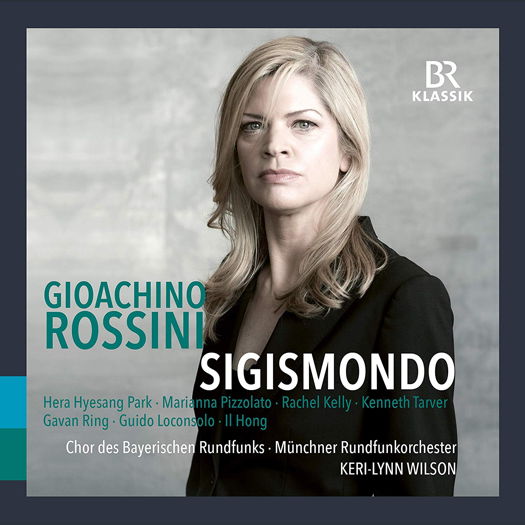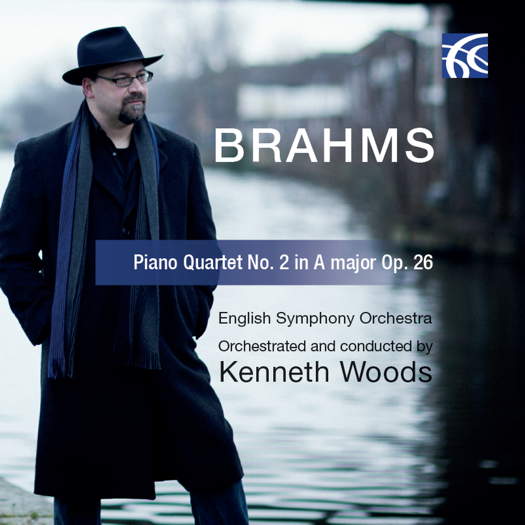 DISCUSSION: What is a work? John Dante Prevedini leads a discussion about The performing artist as co-creator, including contributions from Halida Dinova, Yekaterina Lebedeva, Béla Hartmann, David Arditti and Stephen Francis Vasta.
DISCUSSION: What is a work? John Dante Prevedini leads a discussion about The performing artist as co-creator, including contributions from Halida Dinova, Yekaterina Lebedeva, Béla Hartmann, David Arditti and Stephen Francis Vasta.

Vintage Rossini
A Munich recording of the early opera 'Sigismondo',
heard by GERALD FENECH
'Keri Lynn Wilson paces the work with an uncanny tempo that strikes an ideal balance between the psychological and musical aspects of the opera, and her conducting is consistently sensitive to the nuanced phrasing and textures of the score.'
Gioacchino Rossini (1792-1868) was only thirty-seven when he presented William Tell in Paris in 1829. By some twist of fate it was to be his operatic swansong for a reason nobody knows. Tell was his thirty-ninth stage-work and, maybe, the composer felt he had reached his compositional zenith. True, opera fashions were changing, but a composer at the height of his powers deciding to call it a day is mystifying indeed. Whatever the case, Rossini's legacy is alive and kicking; indeed, he is one of the top ten composers in today's popularity charts. So we need not worry about his early retirement.
Sigismondo, a relatively early work, came quick on the heels of two very successful operas, Tancredi and L'Italiana in Algeri, but these had stories that people loved and understood. Sigismondo is a different kettle of fish. Indeed, the storyline concerns madness and insanity. The libretto by Giuseppe Foppa was effective stage material, and Rossini felt optimistic about its content, but presenting the wife of a king maliciously discredited, rejected by her husband, living in secret to be found again, rehabilitated and reunited with him, and he in turn, being subjected to several bouts of extreme mental distress during her absence, did not augur well for audience acceptance.
People were expecting another Tancredi, but Rossini had other ideas, and the music is written in such a way as to give a precise portrayal of unusual states of mind. Bel canto is here utilised not as a vehicle for beautiful singing, but as a means of conveying the highly individual psychological profiles of people who have lost the reassuring certainties of life.
Listen — Rossini: Un segreto è il mio tormento (Sigismondo Act I)
(CD1 track 12, 1:06-2:06) © 2019 BRmedia Service GmbH :
Premiered in 1814 in Venice, the opera was a big fiasco. The critics condemned it, and people expected much more from the composer. Later in his career, Rossini utilised parts of it in other works such as Il Turco in Italia, La Cenerentola and Adina. Indeed, there is nothing wrong with the music; on the contrary, it is vintage Rossini, melodious, finely orchestrated and highly impressive in its use of the woodwinds.
Listen — Rossini: Overture (Sigismondo)
(CD1 track 1, 0:58-1:55) © 2019 BRmedia Service GmbH :
But the story did not stick, and for the last two hundred years, performances could be counted on one's fingers. Thankfully, this last decade has seen a mini revival with three recordings now available. Hopefully, the version under review will help give the opera the needed push to make it more accepted. Performances are stylish throughout, and both singers and orchestra compliment each other with a precise commitment that is truly exemplary.
Listen — Rossini: Qual felice amico giorno (Sigismondo Act II)
(CD2 track 16, 2:23-3:21) © 2019 BRmedia Service GmbH :
Keri Lynn Wilson paces the work with an uncanny tempo that strikes an ideal balance between the psychological and musical aspects of the opera, and her conducting is consistently sensitive to the nuanced phrasing and textures of the score.
This is a rare Rossini jewel that deserves all the advocacy it can get. Try it.
Copyright © 2 October 2019
Gerald Fenech,
Gzira, Malta

CD INFORMATION - GIOACHINO ROSSINI: SIGISMONDO




